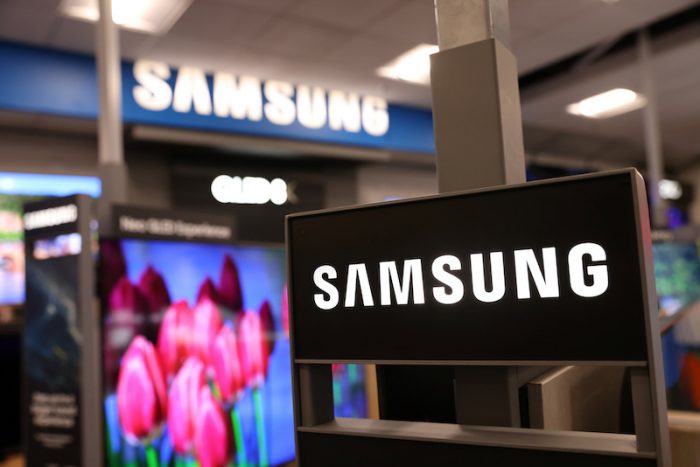South Korea’s top trade negotiator, who flew to the US on Sunday, plans to discuss potential US restrictions on chipmakers in China when he meets US officials in Washington this week.
Trade Minister Yeo Han-koo spoke to reporters on Sunday before leaving for a third round of talks about tariffs. “I will pass on the concerns among those in the industry and take utmost care,” Yeo said when asked to comment about concerns the US may adopt policies to make it difficult for foreign chipmakers to operate in China.
The US Department of Commerce is considering revoking authorizations granted in recent years to global chipmakers Samsung, SK Hynix and TSMC making it more difficult for them to receive US goods and technology at their plants in China, people familiar with the matter said late last week.
ALSO SEE: Flood of Cheap Chinese EVs in Brazil Sparks a Backlash
US may revoke chipmakers’ authorization to work in China
The chances of the United States withdrawing the authorizations are unclear. But with such a move, it would be harder for foreign chipmakers to operate in China, where they produce semiconductors used in a wide range of industries.
A White House official said the United States was “just laying the groundwork” in case the truce reached between the two countries fell apart. But the official expressed confidence that the trade agreement would go forward and that rare earths would flow from China, as agreed.
“There is currently no intention of deploying this tactic,” the official said. “It’s another tool we want in our toolbox in case either this agreement falls through or any other catalyst throws a wrench in bilateral relations.”
Chipmakers shares drop
Shares of US chip equipment makers that supply plants in China fell when the Wall Street Journal first reported the news earlier on Friday. KLA Corp dropped 2.4%, Lam Research fell 1.9% and Applied Materials sank 2%. Shares of Micron, a major competitor to Samsung and SK Hynix in the memory chip sector, rose 1.5%.
A TSMC spokesman declined comment. Samsung and Hynix did not immediately respond to requests for comment. Lam Research, KLA and Applied Materials did not immediately respond, either.
In October 2022, after the United States placed sweeping restrictions on US chipmaking equipment to China, it gave foreign manufacturers like Samsung and Hynix letters authorizing them to receive goods.
In 2023 and 2024, the companies received what is known as Validated End User (VEU) status in order to continue the trade.
A company with VEU status is able to receive designated goods from a US company without the supplier obtaining multiple export licences to ship to them. VEU status enables entities to receive US-controlled products and technologies “more easily, quickly and reliably,” as the Commerce Department website puts it.
The VEU authorizations come with conditions, a person familiar with the matter said, including prohibitions on certain equipment and reporting requirements.
“Chipmakers will still be able to operate in China,” a Commerce Department spokesperson said in a statement when asked about the possible revocations. “The new enforcement mechanisms on chips mirror licensing requirements that apply to other semiconductor companies that export to China and ensure the United States has an equal and reciprocal process.”
Industry sources said that if it became more difficult for US semiconductor equipment companies to ship to foreign multinationals, it would only help domestic Chinese competitors. “It’s a gift,” one said.
Seoul may miss July 8 trade deadline
Yeo, who will be in Washington till June 27, is due to have talks with US Trade Rep Jamieson Greer as part of the third round of bilateral talks.
He warned that Seoul may not stick to the July deadline, suggesting talks may continue beyond July 8 amid political and economic uncertainties in the US.
“Since a South Korea-US summit has yet to take place and key ministers have not been appointed under the new administration, negotiations are likely to focus on areas that the trade ministry can manage – excluding major issues such as defence cost-sharing and exchange rates,” Heo Yoon, an economics professor at Sogang University, said.
“Given these circumstances, reaching a comprehensive agreement on key negotiation frameworks and agendas is expected to be challenging.”
South Korea, currently subject to a blanket 10% tariff with a 25% country-specific duty on pause for 90 days, agreed with the US in their opening round of trade talks in late April to craft a trade deal reducing tariffs by July 8.
Yeo was appointed to the role this month by new President Lee Jae Myung, who won a snap election on June 3, and said during his campaign that there was no need to rush into a trade agreement with the United States.
On Sunday, Yeo added he would reach out to officials at the White House and the US Congress to discuss various trade issues, including Washington’s request for South Korea to loosen rules on imports of US beef.
- Reuters with additional editing by Jim Pollard
ALSO SEE:
S Korea Forms Task Force to Speed up Trade Talks With US
Trade Truce Done With 55% Tariffs on China Exports, Trump Says
Korea’s Hyundai Has Rare Earths Stockpile That Can Last A Year
China Plays Rare Earths Card in EV Tariff Negotiations With EU
New South Korean President Unlikely to Rush Into US Trade Talks
Asian Economies Rocked by Trump’s Tariffs, Fears of Trade War
Japan Says It’s In No Rush For A Trade Deal With The US
China, Japan, South Korea Boost Trade Ties, as US Tariffs Loom
Korea Nabs Ex-Samsung Execs in $3.2bn China Chip Tech Scandal
























